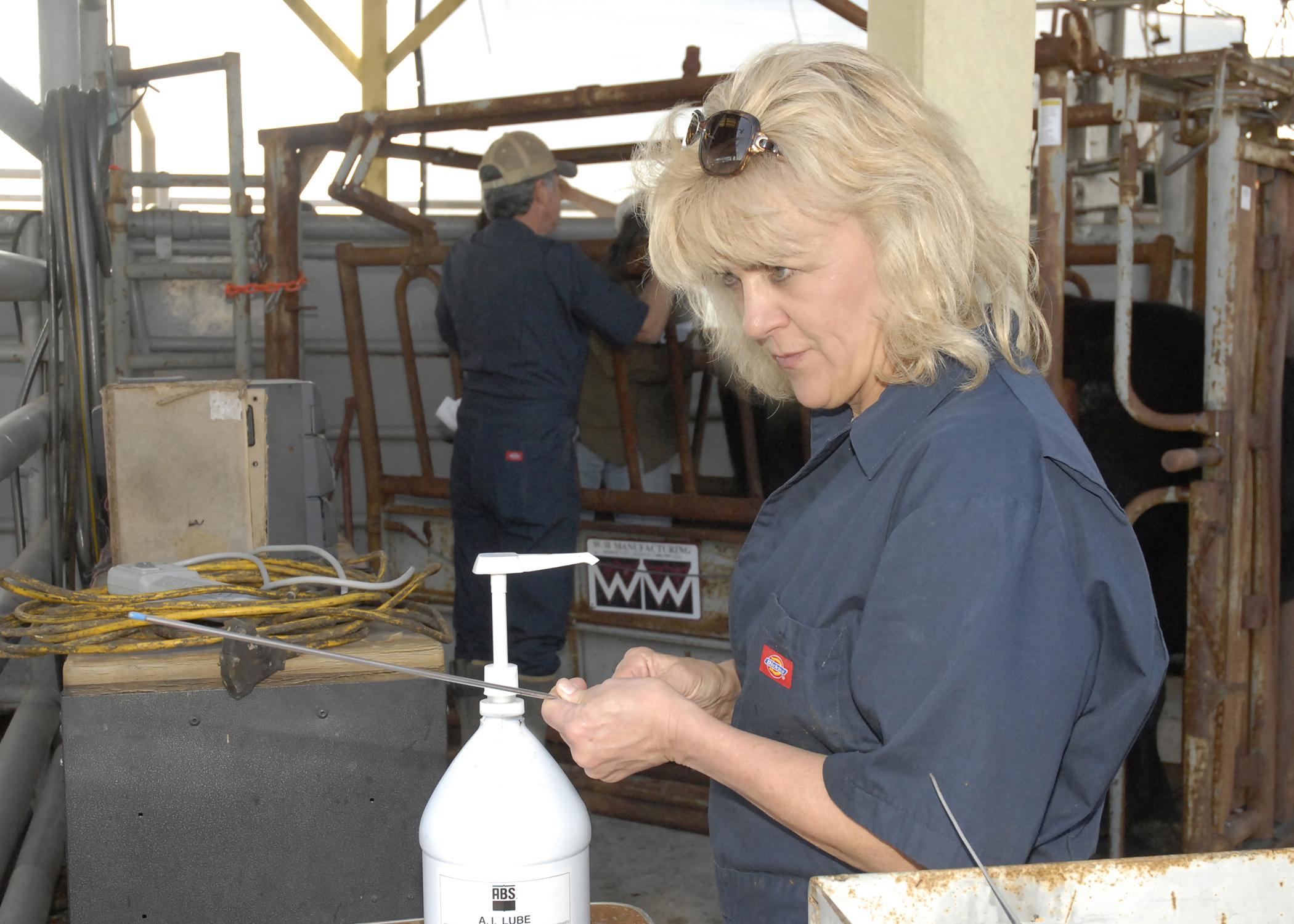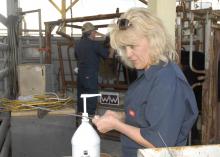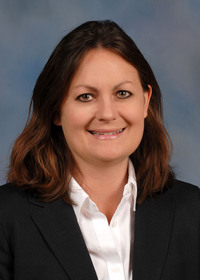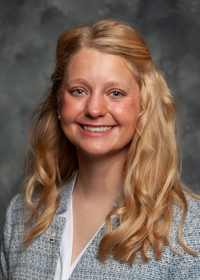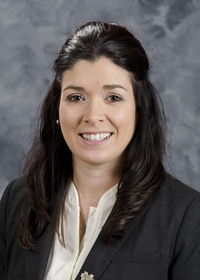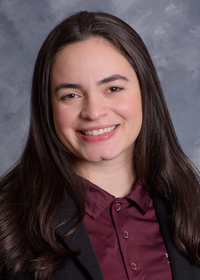Information Possibly Outdated
The information presented on this page was originally released on May 10, 2013. It may not be outdated, but please search our site for more current information. If you plan to quote or reference this information in a publication, please check with the Extension specialist or author before proceeding.
Cattle producers turn to MSU for reproduction class
MISSISSIPPI STATE -- Cattle producers wanting to improve their herds’ genetics recently turned to Mississippi State University for an advanced, hands-on reproduction workshop.
“If producers want to make rapid progress in herd genetics, the economic benefits of artificial insemination are there,” said Jane Parish, beef specialist with the MSU Extension Service. “Producers can have access to a top-quality bull in another part of the country or one that has been injured or died after its semen has been collected.”
Artificial insemination, or AI, allows producers to handpick the best sires and significantly multiply their offspring. Producers can purchase semen from a number of commercial dealers. One collection from a bull can produce 200 straws of semen. Theoretically, after being deposited in a cow, each straw could produce a calf.
Parish said MSU has hosted AI classes in the spring and fall since the early 1990s. Primarily targeting Mississippi beef and dairy producers, the 46 enrollment spots fill quickly for the three-day classes, which are publicized only by word of mouth and a website. Out-of-state participants frequently take part as well.
“Companies offer similar classes, but often at twice the price,” she said. “We are able to provide university experts who are not trying to sell anything, just providing current recommendations to improve herds.”
Parish said about half the teaching is in a classroom, and the other half gives participants the opportunity to actually practice artificial insemination on beef and dairy heifers and cows.
“Participants need as much variety as possible,” she said. “Every cow will not have a textbook, or a predictable reproductive tract, and the more challenges students can experience in a supervised setting, the more successful they will be with their herds later.”
Parish said an emphasis is placed on safety for the people and the animals, but instructors are not just teaching the technique. They are also explaining good management practices.
“Producers need to learn how to research genetics and to understand how to monitor a cow’s heat cycle. If you have a great technique but poor timing, it will be wasted effort,” she said. “An AI program gives producers the opportunity to create uniformity in their herds.”
Mike Howell, an Extension area livestock specialist based in Lee County, was one of the original instructors in the first classes and continues to help producers gain an understanding of genetics and artificial insemination.
“The workshop is helpful even if it teaches people not to do the artificial insemination themselves,” he said. “The information they gain in the classroom will help them in whatever method they choose for their reproduction program.”
Howell said many factors can contribute to the success or failure of an AI procedure, and the class addresses those issues as well as giving participants supervised practice.
“Beginners may have only a 25 percent success rate, while people more experienced with the procedure will be successful 55 to 80 percent of the time,” he said.
Howell said bulls are expensive to maintain and eventually must be replaced.
“An AI program makes producers better managers, no matter how many cattle they have. They become better managers because of how closely they are watching the cattle,” he said. “It makes them aware of all the factors that go into herd improvement. If people come to the class and never practice AI, they will benefit from the experience because it touches on so many aspects of herd management.”
Dr. Linda Farris of Brookhaven, a 1987 graduate of MSU’s College of Veterinary Medicine, took part in the spring 2013 class. Focusing primarily on small animals in her Brookhaven veterinary practice, she wanted a refresher course on cattle, especially since she has started raising Red Brahman cattle.
“All medicine is a continuous learning process, and it’s always good to learn new techniques,” she said. “I have had much more experience with dogs. I needed practice with cattle and experts’ advice to make sure what I was doing was correct. AI is one of those procedures that you just can’t watch someone do. We needed the opportunity to handle the cattle.”
Farris said artificial insemination will give her access to better bulls for her registered herd.

